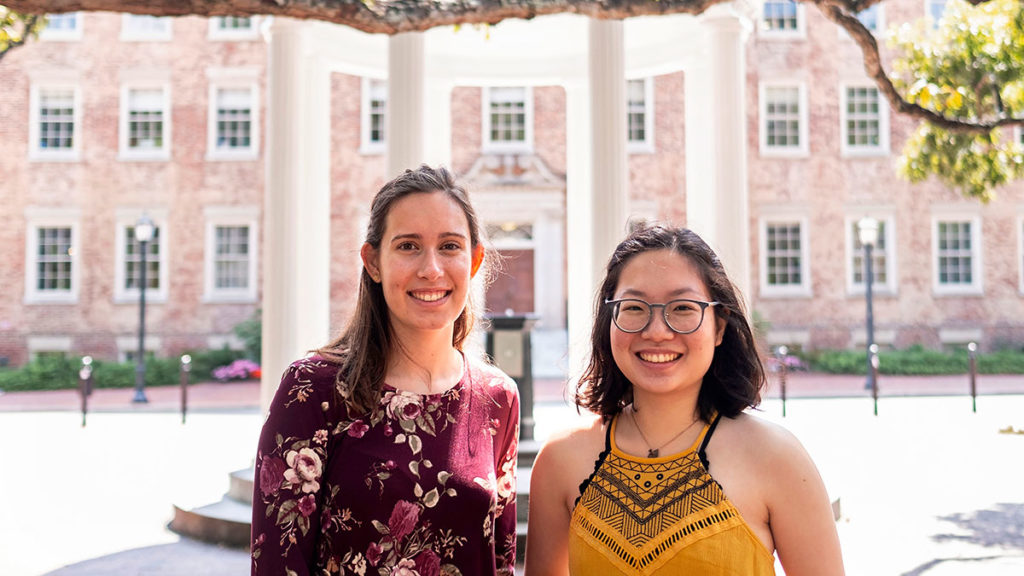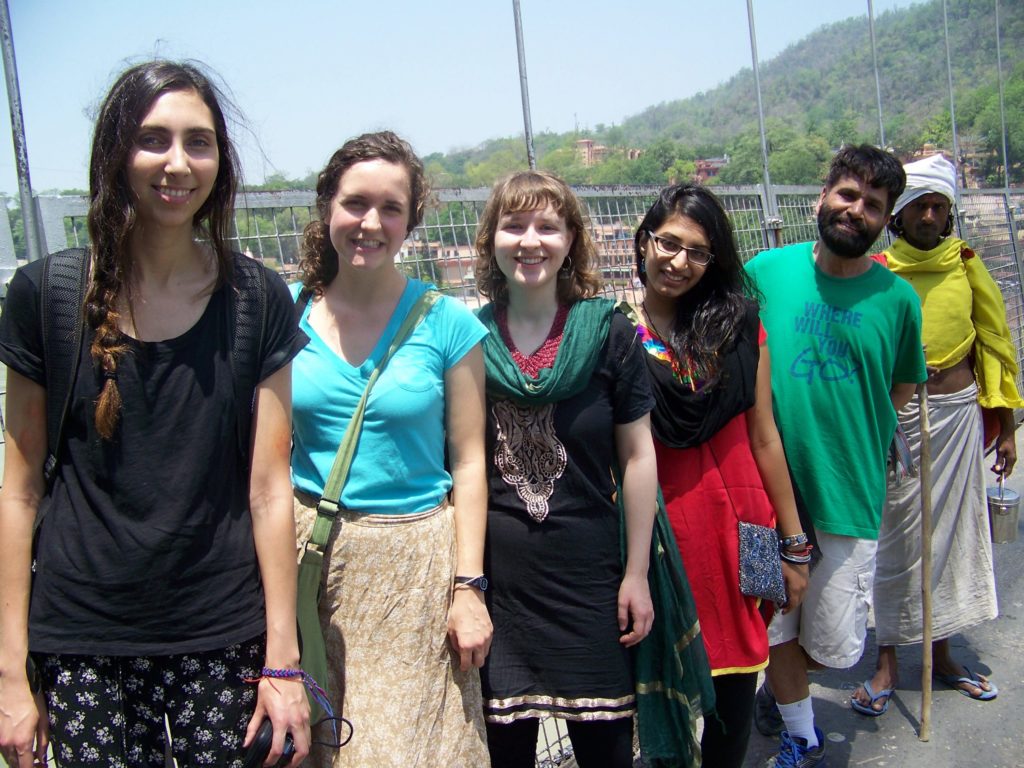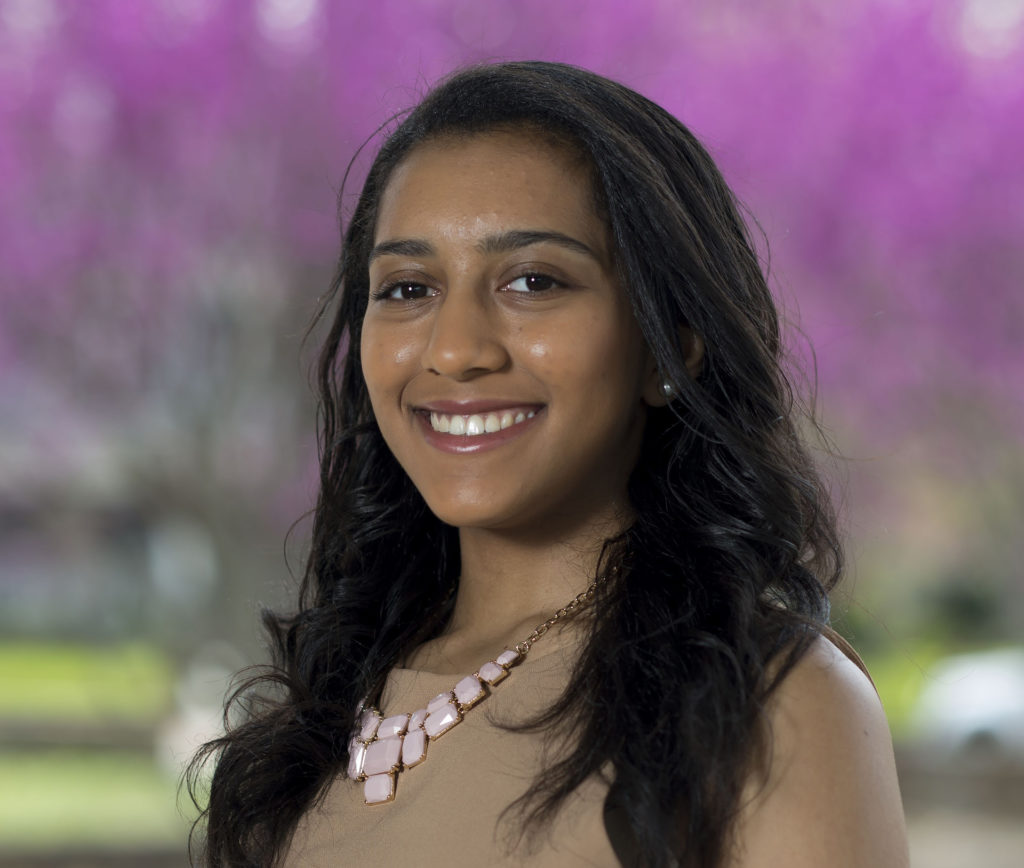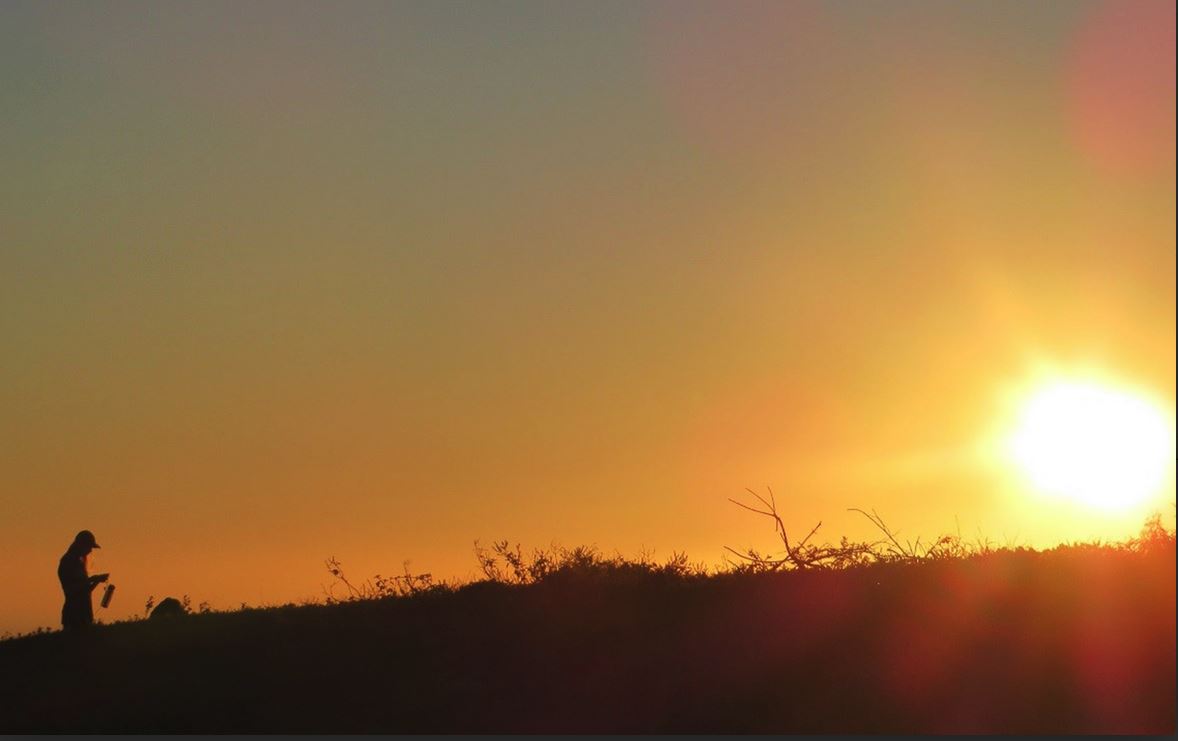
After visiting the Galápagos Islands for a research project over winter break, senior Haley Moser hopes to pursue a career in community-centered research after graduating from Carolina this May.
Water sloshes rhythmically as I make my way across a farm on San Cristóbal Island in the Galápagos. As I begin my trek up a steep hill, the weight of the five-gallon water bag I’m carrying begins to wear on me. This is my second trip grabbing water today, and I’m tired.
“¡Tomas más que las vacas!” shouts a nearby farmer. It translates to, “You drink more than the cows!”
Although I wasn’t really in the mood for jokes, I couldn’t help but smile and laugh along with him. Geovanny Sarigu, the farm’s manager, works under environmental stressors like high temperatures and water shortages regularly. And he knows these things will only get worse over time. But every time I see him, he wears a big smile that infects everyone around him.
Galapágos farmers take such pride in their jobs as producers — and I really enjoyed working alongside them to collect data for a research project led by Angélica Gómez, a PhD student in the UNC Department of Geography. Over winter break, Angélica and I traveled to the islands to study how land cover changes from human impacts like development, tree removal, and soil cultivation are altering the water cycle.
During the trip, Angélica took vegetation and soil measurements and launched a few sensors to collect and store air pressure and water temperature data. This involved hiking through dense and remote forests, scaling rocks, and avoiding these thick, invasive blackberry brambles.
Angélica would joke about how she wouldn’t have to work out that night because of all the hiking and said being lost — which happened a few times — was a great way to get to know our new home. I, on the other hand, was ready to call my mom the first day we got lost in the Galapágos jungle. But my feelings of unease disappeared soon enough. Within a week we were taking soil measurements and planning sensor locations while dancing along transect lines to Angélica’s favorite musicians from Colombia, her home country.
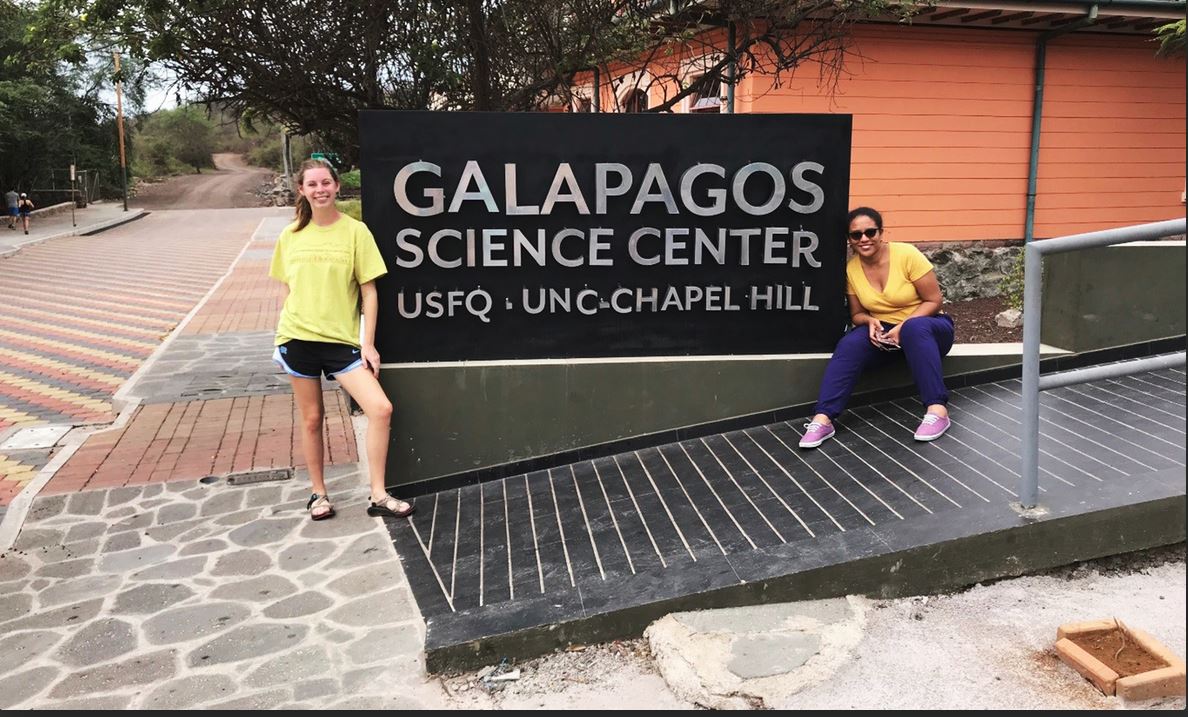
Meaningful partnerships
Before arriving in the Galápagos, Angélica and I worked in the same lab for about a year and became friends. I was grateful that she trusted me to be a reliable assistant for the trip, especially since I was so fascinated by the hydrological aspects of her work — something my own research focuses on. I hoped to aid my theoretical and modelled research with real-life rivers-and-streams hydrological studies.
The incredible landscapes and biodiversity of the islands intrigued Angélica. But, mostly, she hoped to discover how human activities have altered this once-pristine ecosystem — a question still largely unanswered. In our efforts to understand the changes, the people we met and interacted with made me realize I had picked a meaningful project that would not only impact me, personally, but would directly enhance the lives of others.
After taking tons of measurements, we placed our sensors on a few farms around San Cristóbal Island, which gave us the opportunity to interact with farm owners and workers. Not only did they allow us to work on their properties, but they were also genuinely interested in the work we were doing, and wanted to know the details and results.
I felt motivated to do my job to the best of my abilities because of the trust they placed in us to use their land — and work around their cows, which would often lick our tape measurers and relocate our transects. The more accurate our processes were, the more use these farmers would get from the data, which will compare temperature and pressure to periods of high growth on the farms, offering information on the best times to grow specific plants and for how long.
Angélica, on the other hand, hopes to use this data to create a model to evaluate how water storage is impacted by different configurations of the land cover. Particularly, she’s interested in the differences between systems dense with native vegetation and those that have been overtaken by invasive species — a signifier of human activity and introduction.
A personal journey
Over the course of this trip, I learned that some things cannot be taught in a classroom. Research, especially in remote areas on the sides of tropical volcanoes, never goes the way you think it will. Because of this, I was forced to slow down and take my time over and over again.
In order to be successful, you have to know what you want to do, what to pack to do it – and remember to pack everything – complete all the tasks you wanted to get done that day, and then be sure to bring everything you took back home with you. I was always anxious to get outside and get to work, but I never would have been able to correctly if Angélica hadn’t made me constantly slow down and take risks.
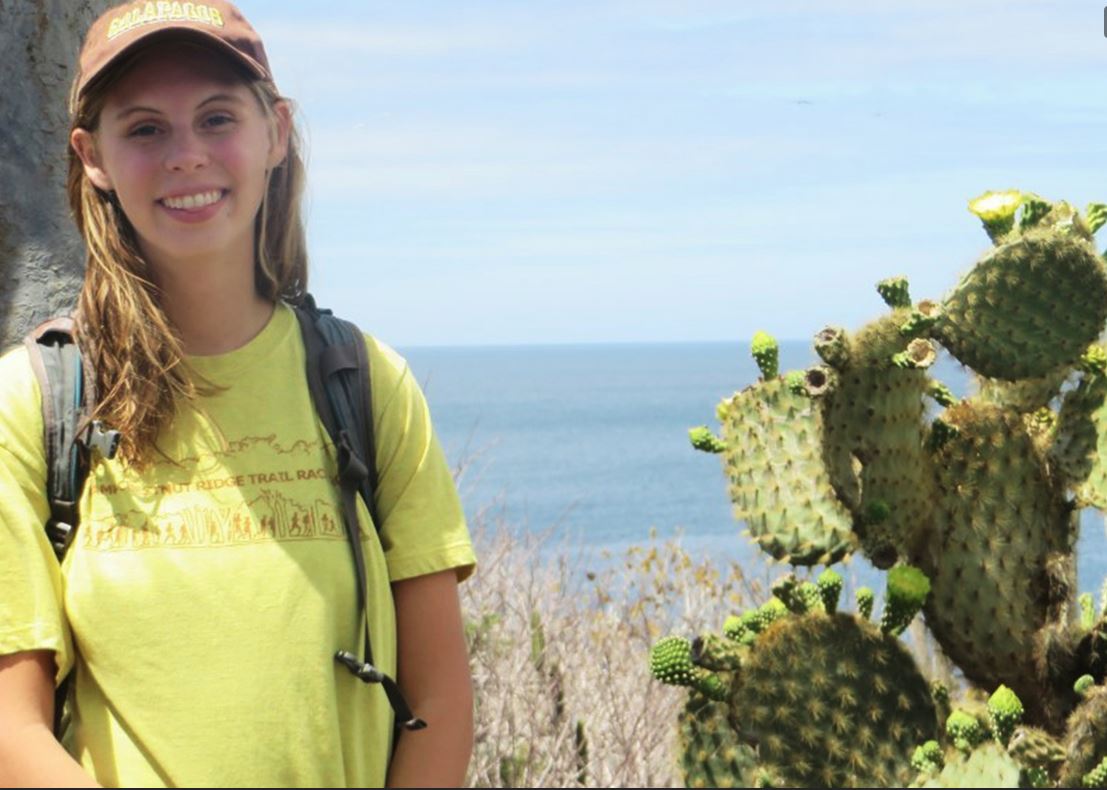
Doing the more “boring” work up front before you do the actual observations or measurements makes all the difference in the world because it leads to fewer mistakes once you’re 10 miles away from the lab without a cell phone signal. It’s not a glamorous lesson but definitely an important one.
Before going to the Galápagos, I wanted to study the environment through computer modelling and virtual simulations. I’m more of a physical geographer than a human geographer, which means my research is focused more on computer work and less on community. Angélica and this project showed me that you really can have it all — quantitative work that allows you to engage with the people who live in and around your study area. Now, whatever job I end up with absolutely must involve being outside and interacting with people.
I believe I arrived back to the states a more patient and empathetic person — one who can speak a little bit more Spanish, is willing to try more foods, and most importantly, is more considerate of others.
Haley Moser is a senior double-majoring in environmental sciences and geography within the UNC College of Arts & Sciences.
Angélica Gómez is a PhD student in the Department of Geography within the UNC College of Arts & Sciences.
Special thanks to the UNC Department of Geography, the Institute for the Environment, and the Faculty for the Future — an organization that funds PhD women in STEM from developing countries to do their research — for funding this trip.
Story by Haley Moser for Endeavors magazine


